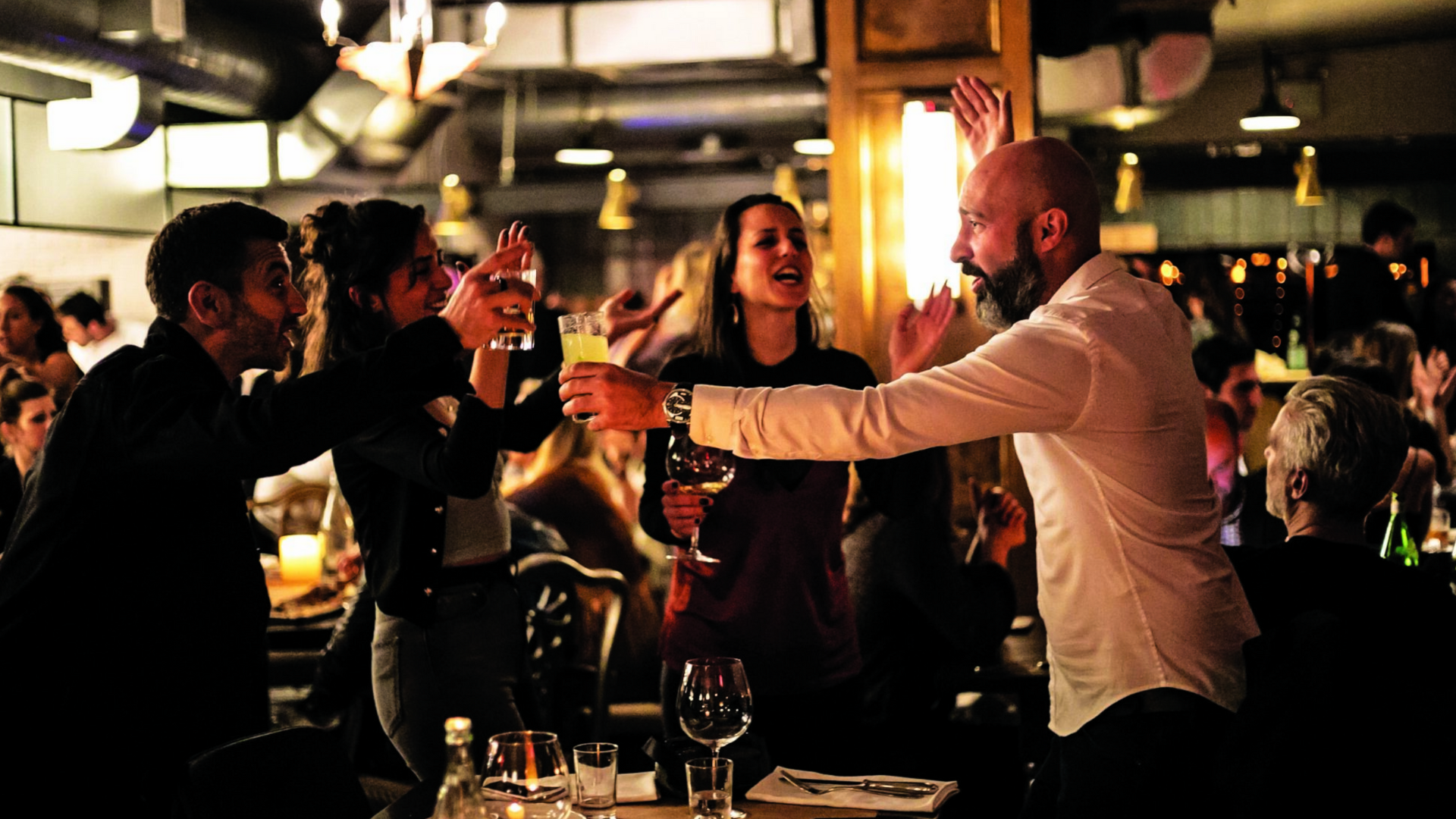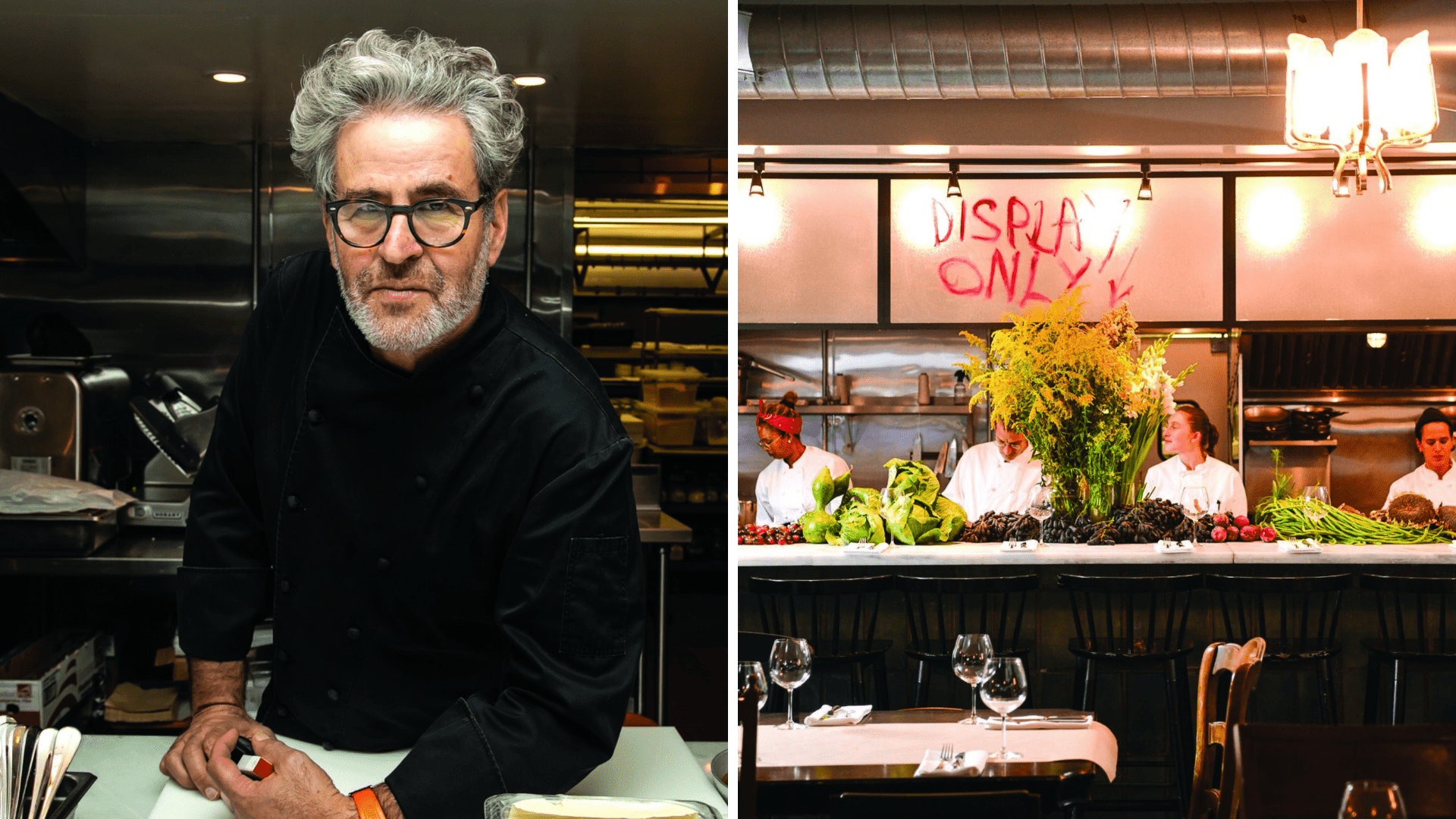By: JEN KARETNICK

How HaSalon’s Eyal Shani and his collaborator Shahar Segal are planning on global domination one tomato at a time.
Renowned Israeli chef Eyal Shani doesn’t develop business plans for his 40-plus restaurants, spread across four continents and 12 cities. Nor does he even refer to his collection of eateries anchored by the hugely popular HaSalon in Tel Aviv, New York, Miami (in partnership with Major Food Group), Paris (in partnership with the MOMA Group), Las Vegas (in the Venetian Hotel), and soon-to-be London, as restaurants. The co-owner of The Good People group along with longtime creative partner and friend Shahar Segal, says they’re visions. Ideas. “Temples of attention.”
So, when you ask him how the pair have managed to put together such a dominant global assortment of, well, culinary revelations—not just HaSalon but North Miznon, Port Sa’id, Bella, Miznon, Lilienblum, and Malka—he chuckles. “Domination,” he says. “That’s such an American concept.”
Instead, Shani, who seems to view life through a lens that is part mystical, part poetic, and part pulling your leg, notes that he’s not in the control business. “I’m in the seduction business,” he says. After dining at a HaSalon, “living room” in Hebrew, “suddenly your life becomes happier than it was.”
Segal, a renowned actor, director, and DJ as well as a restaurateur, also maintains that they are “not in the hospitality or food biz.” Their friendship is a pure manifestation of “a love-hate complications” and an interview with both devolves into sibling-like bickering conducted in Hebrew. Still their commitment to what Segal calls “this noble cause” is equal. “We don’t always succeed but we strive to create an experience to open your heart,” he says. Neither exaggerate about the lack of a consistent business formula, nor are they overstating the enthusiastic response to it. The clientele is absolutely joyous at HaSalon, which has two seating times per night. The first seating is mellow, where family-and-food is the focus. The second seating of the evening, however, is a wild ride through a riveting experience where the DJ encourages guests to dance on tables and to toss napkins in the air. The revelry goes on until closing.
This celebratory atmosphere goes back to 2008 when the original HaSalon appeared as part of a live cooking show. Afterward, the party continued in Tel Aviv more formally two nights a week as a test run. Shani cooked; Segal formulated the vibe. It was so successful, people waited six months for a table. Now generally open Thursday-Sunday, multiple HaSalons are a constantly evolving experiment in locales all over the world, with Shani training the most intuitive and creative executive chefs he can find to “become one” with him and his energy. On the other hand Segal encourages the staff to bring “passionate” personalities to the job rather than become corporate robots. Segal says that these “organic and personal” methods mean that no two meals at any HaSalon will ever be the same—and that this lack of uniformity is truly the key.
All of this is not to underestimate Shani’s culinary wizardry. The Good People group connects with its audience through the menu for a lasting impression. Originally influenced by his vegan, agronomist grandfather, Shani cooks a good deal of high-quality dishes based on Middle Eastern and indigenous-to-the-area products, techniques, and flavors. They’re garnished with simple but top shelf ingredients that range from crème fraiche to caviar and are given whimsical names like “Charred Beetroot Carpaccio Wrapped with White Horseradish Snow,” “Spinach Melting Into Its Own Leaves, Swirled in a Cloud of Parmesan,” and “Grilled Giant Prawn Halves Coated With Tomato Heart.” And they’re served on and in everything from cardboard to paper bags.
Shani, a Master Chef judge who uses a lot of words like vibe and other hipster vernacular, explains his culinary philosophy using the simple tomato. Said fruit is perched along with other produce as décor at the host stand and the open kitchen where more serious foodies can sit and watch the action. For him, it’s both a model and a very cerebral metaphor for HaSalon’s DNA. “People come here with missing information and we make them addicted,” he says. “Now if you are eating a tomato, you are eating a tomato with all the right information.”

